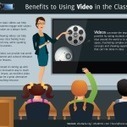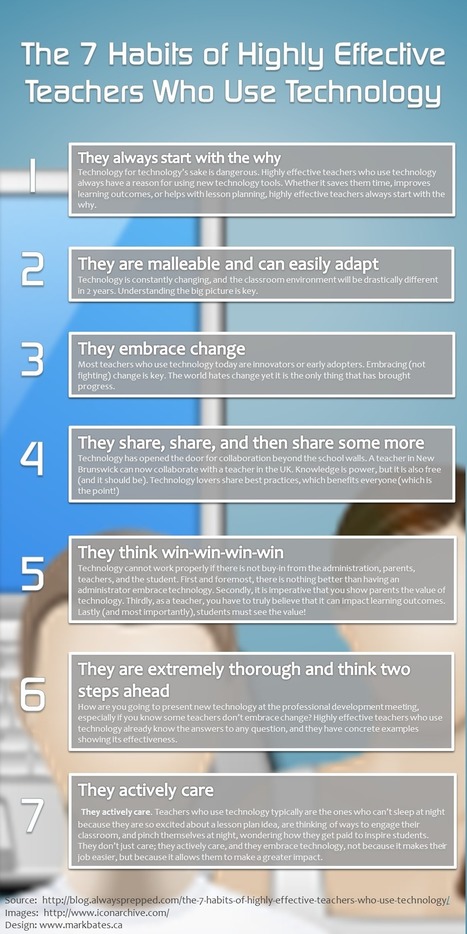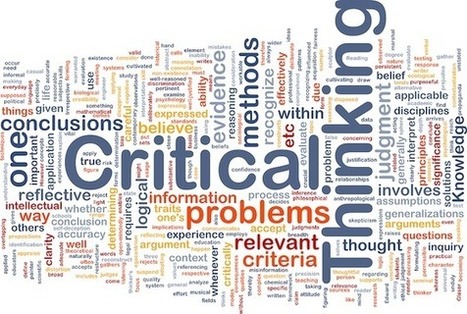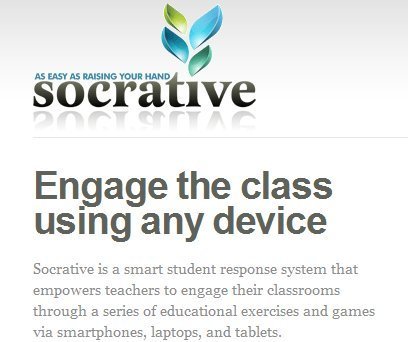Learn about the online groups that are available to business communication and business writing instructors.
Get Started for FREE
Sign up with Facebook Sign up with X
I don't have a Facebook or a X account

 Your new post is loading... Your new post is loading...
 Your new post is loading... Your new post is loading...
No comment yet.
Sign up to comment
Bovee & Thill's Online Business Communication Magazines's insight:
When it comes to persuasion, companies traditionally appeal to left side of the brain, using logic and reason. However, persuasion occurs just as much (if not more) through emotion. Daniel Pink, author of Drive, writes, “Right-brain dominance is the new source of competitive advantage.” Tapping the right side of the brain allows for deeper engagement by uniting an idea with an emotion. The best way to do this? Tell a compelling story. . . Business is changing. The experts sure seem to think so. Every day, some new article hypes a brave new world of egalitarian openness and collaboration. That might be true if you work for yourself.
Bovee & Thill's Online Business Communication Magazines's insight:
Business is changing. The experts sure seem to think so. Every day, some new article hypes a brave new world of egalitarian openness and collaboration. That might be true if you work for yourself. For the rest of us, it’s still a winner-take-all, command-and-control world. Always has been, always will be. The experts may own the language, but not reality. When leaders feel threatened or the ink runs red, they rarely tap into their talent for solutions. More often, they cut communication and withdraw behind closed doors. Corporate culture can overcome many hurdles, but never human nature. . . Any business communication instructor who wants to take advantage of the benefits video can have in the classroom needs to create and implement a video strategy. . . The teaching of business communication is undergoing a transformation because of six dramatic changes that are explained in this video. These factors shape a different workplace in the 21st century and require students to learn new and better ways to communicate. For example, the trend away from the old communication model as a monologue, as in a typical sales letter, to the new communication model as a dialogue, such as on Facebook business page, is not a fad. It's a fundamental shift in the way we communicate. Companies are no longer in control of their messages and must adapt to a world in which customers and other stakeholders demand to participate in and influence the conversation. Online educators are finding ways to meet and share online through a variety of forums and groups. Tips for finding the spaces that are right for you and making the decision to participate. . . Perhaps you have a special skill, talent, or knowledge-base that you want to share with others, and maybe you’ve heard that teaching online courses can make you a little extra money. The resources below will help you discover how to combine both what you have to offer and what you wish to gain by guiding you through creating and establishing an online course. No matter what age of student, subject you want to teach, or size of the class, you will find resources and information to bring your class online. . . Take an adjective (implacable) or a verb (calibrate) or even another noun (crony) and add a suffix like ity, tion or ism. You’ve created a new noun: implacability, calibration, cronyism. Sounds impressive, right? Nouns formed from other parts of speech are called nominalizations. . . If you think a semicolon is a regular colon with an identity crisis, I will not hire you. If you scatter commas into a sentence with all the discrimination of a shotgun, you might make it to the foyer before we politely escort you from the building. Some might call my approach to grammar extreme, but I prefer Lynne Truss's more cuddly phraseology: I am a grammar "stickler." And, like Truss — author of Eats, Shoots & Leaves — I have a "zero tolerance approach" to grammar mistakes that make people look stupid. . . Infographics are all the rage these days. It makes sense. After all, we’re a visual species. Since our earliest days, images have captured our attention. They have been at the heart of storytelling, one of our first methods of expression and a fundamental tool for education. Infographics, which are more detailed than photos and convey information more quickly than videos, tap into this visual learning style. They can prove especially powerful in press releases by extending the core message and highlighting the important components to bring the text to life. Plus, they’re inviting. According to a recent analysis of press releases by PR Newswire, the inclusion of multimedia assets significantly improves the number of views a message generates. In the age of social media, any advantage in grabbing a slice of your audience’s attention is worth seizing upon. . . In The Wall Street Journal, James E. Courter writes that today's students don't read—and as a result, they have sometimes hilarious notions of how the written language represents what they hear. . . |
Maybe you have heard you should use stories to bring your content to life, but aren’t sure why or how storytelling adds value. . . Note: Some of the most effective business messages rely on storytelling techniques. Bovee & Thill write the only business communication textbooks that offer hands-on advice and multiple activities to help students develop “business-class” narrative techniques. "Learn More" media items (more than 60 in all) integrate Bovee & Thill textbooks with online materials and connect students with dozens of carefully screened and selected online media, including videos, PowerPoints, PDFs, podcasts, and articles. These media provide examples and insights from successful professionals to reinforce learning and extend the chapter material. For more information about Bovee & Thill textbooks, visit http://boveeandthillbusinesscommunicationblog.com. Check out our new, up-to-date collection of search engines to discover the very best search engine for finding the academic results for which you're looking. . . Unless you’ve been living under a rock, you might have heard by now that mobile learning is no longer the next big thing – it IS the big thing. Here is a quick breakdown of the mobile learning trends you need to be watching. All of these trends saw significant uptake in 2012, and look to continue. . . Get out your red pens. It’s time to rewrite tired old phrases that need to be retired from the business world. We can start with these 12: . . . Anybody who has ever logged on knows that online writing begets exclamation points. A lot of exclamation points! Mocking this punctuational predilection is easy and fun. An amusing blog called “Excessive Exclamation!!” features photos of, for example, a Carl’s Jr. printed receipt with the words “PLEASE LET US KNOW HOW WE DID!!!” , , , The single biggest problem in communication is the illusion that it has taken place. - George Bernard Shaw The way we communicate with others and with ourselves ultimately determines the quality of our lives. - Tony Robbins Communication works for those who work at it. - John Powell Learn the thinking codes for effective communication . . .
Discover exciting business communication videos, presentations, online magazines, and a virtual pinboard with hundreds of items you can use in your classes tomorrow.
Along with creativity, collaboration, and communication, critical thinking is one of the four components of learning in the 21st century. Here are twelve tools that you can use to quickly gather informal feedback from students . . . |




























